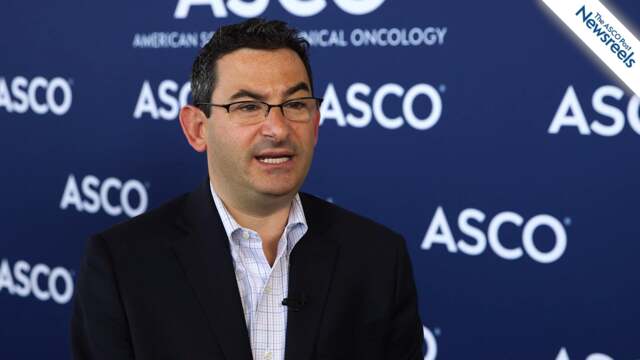Juliet Elizabeth Wolford, MD, on Ovarian Cancer: The Cost of Care
2018 ASCO Annual Meeting
Juliet Elizabeth Wolford, MD, of the University of California, Irvine, discusses the cost-effectiveness of various types of maintenance therapy in advanced ovarian cancer: paclitaxel, bevacizumab, niraparib, rucaparib, olaparib, and pembrolizumab (Abstract 5508).
Arnaud Méjean, MD, PhD, of the Hôpital Européen Georges Pompidou, discusses his study’s potentially practice-changing finding that nephrectomy is no longer the standard of care for patients with metastatic renal cell carcinoma (Abstract LBA3).
Jeremy S. Abramson, MD, of the Massachusetts General Hospital, discusses study findings on lisocabtagene maraleucel in relapsed or refractory aggressive NHL (Abstract 7505).
Courtney Denton Dinardo, MD, of The University of Texas MD Anderson Cancer Center, discusses findings on the durable response with venetoclax in combination with decitabine or azacitidine in elderly patients with acute myeloid leukemia (Abstract 7010).
Apostolia-Maria Tsimberidou, MD, PhD, of The University of Texas MD Anderson Cancer Center, discusses findings on clinical outcomes, including long-term survival, according to the pathway targeted and treatment period (Abstract LBA2553).
Gabriel N. Hortobagyi, MD, of The University of Texas MD Anderson Cancer Center, discusses the 8th edition of the TNM staging system, which includes prognostic stage groups based on clinical and pathologic factors combined with grade and hormone and HER2 status.





